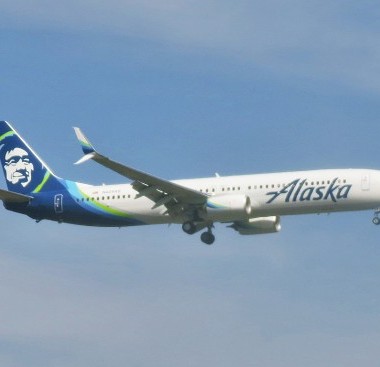Qantas sued for allegedly selling seats on cancelled flights
Qantas Airways Ltd. was sued by Australia’s competition watchdog for allegedly selling seats on thousands of cancelled flights, piling pressure on an airline already under lawmaker scrutiny for its treatment of customers and record profits.
For more than 8,000 scrapped services between May and July 2022, Qantas kept selling tickets for an average of more than two weeks, and sometimes longer than a month, the Australian Competition & Consumer Commission said Thursday as it started Federal Court proceedings against the airline. Qantas also allegedly took weeks to tell ticketholders on more than 10,000 flights that their services had been cancelled.
All told, Qantas pulled almost one quarter of domestic and international flights out of Australian airports between May and July of last year. In most cases, the airline continued to sell seats or didn’t tell ticketholders for days, and sometimes it did both, according to the ACCC.
The forensic investigation suggests the airline benefited — at passengers’ expense — from large-scale cancellations that it failed to publicize. The claims strengthen the case to rein in an airline that controls about two-thirds of the Australian market, months before a government white paper is due to address competition in the sector.
Qantas “engaged in false, misleading or deceptive conduct,” the ACCC said. The airline took payments for tickets on flights that it knew, or should have known, were already cancelled, it said. The competition regulator already draws more complaints about Qantas than any other business in Australia.
Qantas stock fell as much as 4.3% before trading down 3.3% at A$5.83 ($3.79) at 12:01 p.m. in Sydney.
Qantas said it will examine the ACCC’s claims and respond in court, and called the period in question “a time of unprecedented upheaval for the entire airline industry.”
Egg Attack
For much of 2022, Qantas struggled to cope with a sudden rebound in demand as Covid-19 travel restrictions eased. With the airline short of staff and planes, cancellation rates soared. Passenger rage reached its peak in July last year, when the Sydney home of under-fire Chief Executive Officer Alan Joyce was pummeled with eggs and toilet paper.
The ACCC, using specialist data analysis and compulsory information notices, found Qantas cancelled about 15,000 of 66,000 flights on its May-to-July 2022 schedule. The legal proceedings relate to more than 10,000 of those scrapped services.
“Qantas made many of these cancellations for reasons that were within its control,” ACCC Chair Gina Cass-Gottlieb said. The actions “left customers with less time to make alternative arrangements and may have led to them paying higher prices to fly at a particular time, not knowing that flight had already been cancelled.”
At least one passenger was left A$600 out of pocket, the ACCC said. In another case, Qantas sold a ticket on a Sydney to San Francisco flight some 40 days after pulling the service.
‘Deeply Concerning’
“These are deeply concerning allegations,” Australian Treasurer Jim Chalmers said in a statement.
The ACCC said it’s seeking orders including penalties, injunctions, declarations and costs. The maximum penalties for each breach of Australian consumer law before Nov. 9, 2022 is A$10 million — or three times the benefits that were obtained — whichever is greater. If the figure can’t be determined, a corporation can be fined 10% of its revenue. For Qantas, the would equate to almost A$2 billion.
Joyce, who retires in November after 15 years at the helm, was this week interrogated by a cost-of-living parliamentary committee over Qantas’ retention of some A$400 million of flight credits given to passengers during the pandemic. The airline this month reported record annual earnings of A$2.47 billion.
As the ACCC announced its lawsuit, the Age newspaper reported that Qantas is scrapping the expiry date on Covid flight credits.
Qantas was this month served with a class-action lawsuit for allegedly not refunding passengers for flights cancelled during the pandemic, and illegally benefiting by retaining billion of dollars in customer funds, after the carrier racked up some A$2 billion in Covid-related travel credits.
Similar Stories

Lufthansa Cargo and Maersk launch cooperation to support decarbonization of airfreight
View ArticlePort Authority of New York and New Jersey airports see spookily spectacular surge in October
Port of New York and New Jersey surpasses 700,000 TEUs for eighth consecutive month
View Article
airBaltic Cargo partners with cargo.one to accelerate and enhance its digital sales
View Article
Chapman Freeborn agrees partnership with Portuguese multimodal logistics specialist
View Article
Cathay is ready for the commissioning of the three-runway system at Hong Kong International Airport
View ArticleUnited Airlines Holdings Inc. upgraded To ‘BB’; outlook stable
• United Airlines Holdings Inc. is on track to generate credit measures in line with our previous upside rating threshold this year, and we expect improvement in 2025. • The…
View ArticleGet the most up-to-date trending news!
SubscribeIndustry updates and weekly newsletter direct to your inbox!





